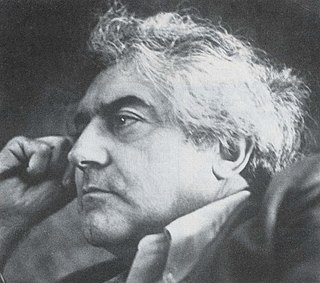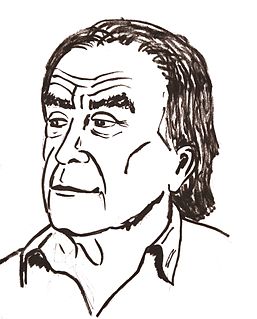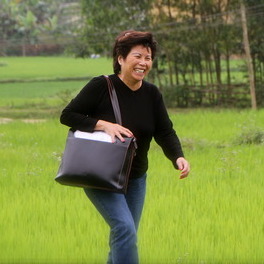A Quote by Mark Kurlansky
The impact of the Vietnam War on TV made everyone recognize the importance of visual media.
Related Quotes
Most of us who were opposed to the war, especially in the early '60's - the war we were opposed to was the war on South Vietnam which destroyed South Vietnam's rural society. The South was devastated. But now anyone who opposed this atrocity is regarded as having defended North Vietnam. And that's part of the effort to present the war as if it were a war between South Vietnam and North Vietnam with the United States helping the South. Of course it's fabrication. But it's "official truth" now.
When I grew up, in Taiwan, the Korean War was seen as a good war, where America protected Asia. It was sort of an extension of World War II. And it was, of course, the peak of the Cold War. People in Taiwan were generally proAmerican. The Korean War made Japan. And then the Vietnam War made Taiwan. There is some truth to that.
I think that the war on drugs is domestic Vietnam. And didn't we learn from Vietnam that, at a certain point in the war, we should stop and rethink our strategy, ask ``Why are we here, what are we doing, what's succeeded, what's failed?'' And we ought to do that with the domestic Vietnam, which is the war on drugs.
Critical journalism has gone out of fashion, or rather, it has been bought out. And so, we have much less of it than we did during the Vietnam era, where there was very critical reporting on the Vietnam War and a lot of disagreement among the media. Now you find that the media are much more homogenous, converging because they all must cater to the same community of advertisers. It's sad to see.
Instagram is a media company. I think we're about visual media. I explain ourselves as a disruptive entertainment platform that enables communication through visual media. I don't think it's just photos. There's a reason we don't allow you to upload photos on the Web as albums. It's not about taking all these photos off your DSLR putting them into an album and sharing them with your family. It's not about that. It's about what are you up to right now out in the real world, how can you share that with everyone.
Even soldiers from the Vietnam War had said that when they were fighting in that war, the landmine was just one of any number of weapons to use in the fighting. It wasn't until they began to think about the aftermath and the legacy of landmines that they recognized the long-term, indiscriminate impact of the weapon.































